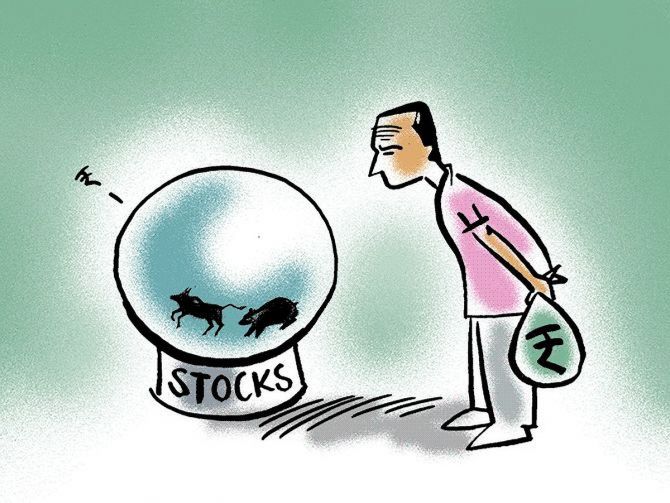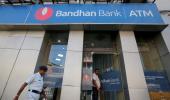Though most analysts expect the global central banks to keep the liquidity tap open, valuations of Indian markets, they say, are beginning to look stretched.
Against this backdrop, they remain cautious, with some even expecting a minor correction from here on.

After a near 50 per cent jump in the S&P BSE Sensex and Nifty50 from their respective March lows, the markets have consolidated and await fresh triggers since the past few weeks.
That said, the optimism has moved to the broader markets, with the mid- and small-caps outperforming their large-cap peers thus far in August.
But, will the optimism sustain? Have markets factored in most positives after resumption of economic activity after the lockdown?
Though most analysts expect the global central banks to keep the liquidity tap open, valuations of Indian markets, they say, are beginning to look stretched.
Against this backdrop, they remain cautious, with some even expecting a minor correction from here on.
Credit Suisse Wealth Management
After a sharp rally in the Indian equity market, valuations have become expensive, even for mid-caps.
The Nifty Index is valued at 12-month forward price-to-earnings of 21.2, which is more than two standard deviations above its 10-year mean, while the Nifty Midcap 50 Index trades at 20.6, one standard deviation above its 10-year average.
Given the earnings surprises and unprecedented support from global central banks, the confidence is back in equity markets.
Additionally, corporates in India have seen massive capital-raise in several sectors, suggesting foreign equity capital is freely flowing.
These factors, combined with low interest-rate environment globally, will likely keep the valuation elevated, in our view.
JP Morgan
A decline in potential growth will pressure India equity multiples.
We advise minimal or reduced exposure to sectors linked to growth/investment cyclicals like financials and energy (ex-Reliance Industries).
We advise focusing on consumer, services, and health care-oriented companies.
ICICI Securities
The index captures a large part of economic recovery optimism.
We will recommend being more stock-specific, which illustrates the quality of earnings, sustainability of growth prospects, and possesses fundamental moat.
We remain positive on rural economy and resilient sectors like information technology, pharmaceutical, and private banking.
Dolat Capital
We downgrade our stand on the Indian equity markets to negative after a stupendous rally from the March lows.
The Nifty is now less than 9 per cent from its all-time high, and this for one of the worst earnings/ GDP readings seem surreal to us.
We expect reality to set in sooner rather than later.
We are not calling for any specific levels or time frames at this juncture because there will be too many variables at work here.
What is a more pertinent aspect that we want to call out for a correction is to let the markets digest the barrage of new aspects of businesses that will emerge - and for some heavyweights like financials, consumer, discretionary, manufacturing and many others.
Equinomics Research & Advisory
Some correction in the global markets starting is inevitable. In 2000 and 2007, the ratio of the US market capitalisation to GDP crossed 100 per cent and then the US markets fell quite badly.
Now the ratio stands at a record high of 177 per cent.
As a large number of jobs are lost worldwide, it is quite logical that many investors will start booking profits at some point in time in the short-term itself.
In our view, the same could lead to around 5 per cent correction in the global indices in the short term.












 © 2025
© 2025